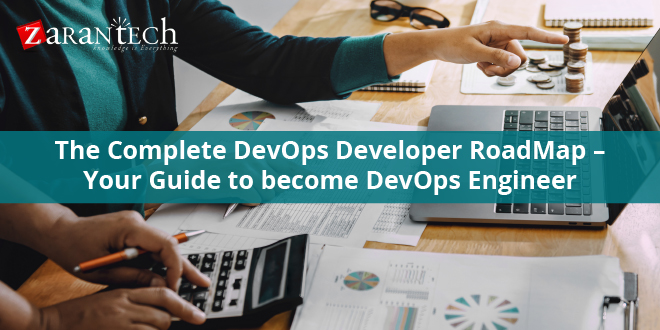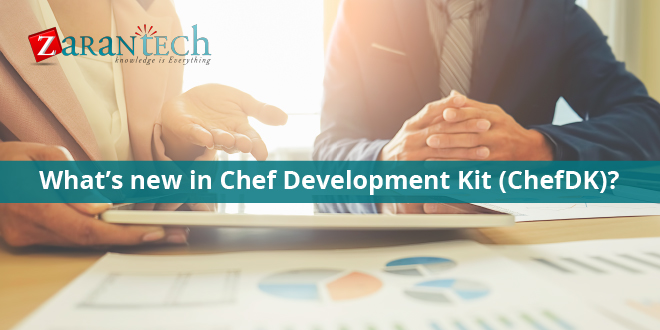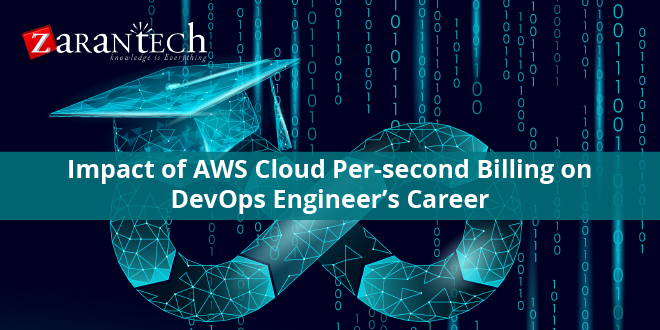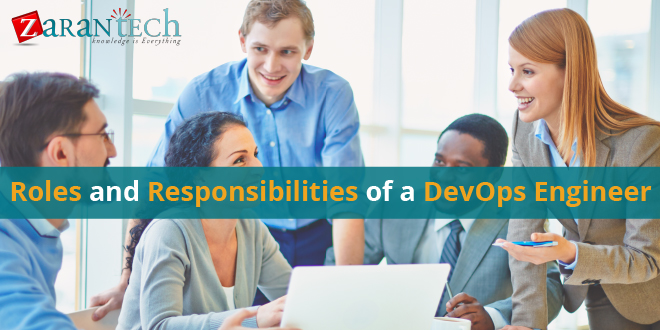The Complete DevOps Developer RoadMap – Your Guide to become DevOps Engineer
Category: DevOps Posted:Aug 07, 2020 By: Alvera Anto
DevOps is quite trending at the moment, and the majority of my friends, coworkers, and experienced developers I know are working hard to become a DevOps engineer and project themselves as DevOps champion in their organization. While I understand the advantage of DevOps, which is directly linked to improved software development and implementation, from my minimal experience, I can state that it’s not a very easy work. It’s tough to choose the right course in the mind with numerous tools and technologies around. Most o readers also ask me this question, how to become a DevOps Engineer, which means should I learn? Which techniques should I follow? Does learning Virtuoso and Jenkins is a must for a DevOps Engineers?
How about Docker and Kubernetes? Does the infrastructure automation part of DevOps? should learn Chef, Puppet, or Ansible are simply some of the questions keep coming to me.
I have my best to answer these with my minimal experience. Still, I couldn’t write down in the fashion which is simply outstanding and reusable but not to worry, today I am going to share with you’ll an amazing source that will help you to become the DevOps Engineer you always wanted to be, the complete DevOps RoadMap.
I was casually surfing through the net the other day when I come across this outstanding GitHub web page by Kamranahmedse, which shows various helpful roadmaps to become front-end designer, back-end programmer, a full-stack web developer and DevOps Designer.
This RoadMap is great in any sense as it not only about what is the role of a DevOps engineer but it also tells which tool you need to learn to land in your dream job role.
To complete the roadmap, I have also shared some useful on-line programs to make sure that you learn and enhance the tool or technology you want.
The DevOps RoadMap for Developers
Anyhow here is the full DevOps RoadMap I am speaking about:
Now, let’s go through the RoadMap in detail and figure out how can you learn the important skills require to become a DevOps guru in 2020:
1. Learn a Programming Language
Undoubtedly and I presume you people know among the 3 main programming languages, i.e., Java, Python, or JavaScript. If you did not, don’t worry, you can have a look at the courses below to learn your choice of language, though I highly suggest you learn at least among these 3 significant and widely used programming languages.
If you wish to find out Java, then JAVA JEE AngularJS Certification Training is an ideal online training course, which also helps you understand Object-Oriented Programming(OOP) using Java Programming language.
Moving on, if you want to learn Python, then Python Certification Training course is my preferred resource, which will include master Python Frameworks such as DJANGO and FLASK.
And, if you want to learn JavaScript, then you must not look beyond Mosh Hamdani’s JavaScript Basics for Beginners program on Udemy.
If you need more options and don’t mind learning from free resources, then you can regularly take a look at my listing of complimentary Java, Python, and JavaScript courses.
2. Understand different OS concepts
This is where the Ops part comes in, earlier it was solely supported and operated by system admins and people who were responsible for learning about OS and hardware, but with DevOps, currently, developers also need to learn them.
Basic knowledge of Process Management is expected from DevOps developers, Threads and Concurrency, Sockets, I/O Administration, Virtualization, Memory storage, and File systems, as recommended in the roadmap.
Since a lot of us operate in Linux, I recommend you to learn the DevOps Certification Training course on ZaranTech to learn and understand Linux OS better.
If you need more choices and you don’t mind gaining from free resources, you can also have a look at my listing of complimentary Linux programs.
3. Learn to Live in Terminal
For a DevOps professional, it is crucial to have great command in the command line, especially if he is operating in Linux. Being aware of some Linux shell like Bash, or Ksh and tools like find, grep, awk, sed, love, and networking commands like nslookup and netstat are mandatory.
If you feel you need to refresh your knowledge about these commands and tools, after that you should join the Linux Command Line User Interface (CLI) Principles program on Pluralsight.
It’s a good refresher course for both beginners and experienced Linux users. You will certainly need a Pluralsight membership to access the program, which costs around $29 monthly or $299 each year, however, it’s worth it.
4. Networking and Security
Gone are the days of seclusion; in today’s globe, every little thing is connected to everything, which makes networking and security essential. To become an excellent DevOps developer, you must know about basic networking and security concepts like DNS, OSI Version, HTTP, HTTPS, FTP, SSL, TLS, and so on. To refresh your knowledge in these concepts, you can have a look at the training course on Pluralsight.
5. What is and how to setup
As a DevOps champ, you need to recognize what is established in your machine and how you can set that up, and only that you can think about automating it. Generally, a DevOps engineer should understand how to set up a Web Server like IIS, Apache, and Tomcat. He/She must also learn about Caching Server, Lots balancer, Reverse Proxy, and Firewall program, and so on
6. Learn infrastructure as code
This is probably the most crucial thing for a DevOps engineer, and this is a vast domain as well. As a DevOps developer, you must understand about containers like Docker as well as Kubernetes, Arrangement monitoring devices like Ansible, Chef, Salt, and Puppet, Infrastructure Provisionings like Terraform and Cloud development. Below are some of my recommended online training programs to learn about these tools.
If you want to learn Docker, then The Docker Mastery: The Complete Toolset From a Docker Captain training course on Udemy is the best course to start with. It provides comprehensive coverage of all the tools that a DevOps engineer will need.
If you intend to learn Kubernetes, then I recommend you sign up with the Learn DevOps: The Total Kubernetes training course. This will certainly teach you how to develop, deploy, and manage Kubernetes.
And, if you want to learn Chef, then there is no better course after that Chef Basics: A Recipe for Automating Framework on Udemy. Possibly the most effective course to learn Chef at this moment.
If you need more choices on Docker, you can find the list of 10 essential training courses for DevOps Developer.
7. Learn some Continuous Integration and Delivery(CI/CD) tools
This is another very essential thing for DevOps gurus and champion, i.e., to establish a pipe for continuous integration and delivery. There are a lot of tools in the CI/CD location, e.g., Jenkins, TeamCity, Drone, etc
Yet, I strongly advise discovering a minimum of Jenkins, as it’s one of the most commonly used and probably the most innovative CI/CD tool in the market. If you don’t know Jenkins, then this program is best to start with.
If you wish to learn Jenkins, then there is no much better course than the classic Jenkins from No to Hero: The DevOps Jenkins Master on Udemy. It’s the best program, and I have also found out a lot of my Jenkins skills from this course.
Also, if you require more choices and don’t mind gaining from free resources, then you can also look ar my listing of 6 free Jenkins and Maven training courses for Java developers.
8. Learn to keep an eye on the software program and framework
Besides configuration and release, monitoring is another important aspect of DevOps, which’s why a DevOps engineer needs to know Infrastructure and application monitoring.
There are a lot of tools available, like Nagios, Icing, Datadog, Zabbix, Monit, AppDynanic, New Relic, etc. You can select a few of them depending upon which one is used in your company like AppDynamic and Nagios.
9. Learn About Cloud Providers
Cloud is the next big thing, and eventually, you have to move your application to the cloud; thus it is necessary for a DevOps engineer to at least know about some of the popular Cloud Providers and their basics.
While AWS is the leader in the cloud it’s not the only one, Google Cloud and Azure are slowly catching up, and then, we have a few other players like Heroku, Cloud Foundry, and Digital Sea.
Also, if you require more options and you do not mind learning from free resources, then you can also look at my list of AWS programs for programmers and DevOps guys.
Go through our DevOps Interview Questions to crack the Interviews.
Closing Notes
It’s certainly not going very easy to make a career in DevOps since the demand is so high, however by following this roadmap and guide, you are one step closer to becoming a DevOps developer. Also, do not be overwhelmed by the size of this RoadMap; there is a likelihood that you currently understand most of the right stuff; just focus on what you do not understand and go deep on necessary tools and technologies like Docker, Jenkins, and also Kubernetes.
Now, if you’re willing to learn from the best, then you’re in the right place. At ZaranTech, we offer self-paced online training DevOps conducted by experienced industry experts. Browse through our course page for details. Also, if you’re looking for more such engaging and informative blog posts, feel free to visit our website.
Check out this insightful video on DevOps Tutorial for Beginners:




 99999999 (Toll Free)
99999999 (Toll Free)  +91 9999999
+91 9999999